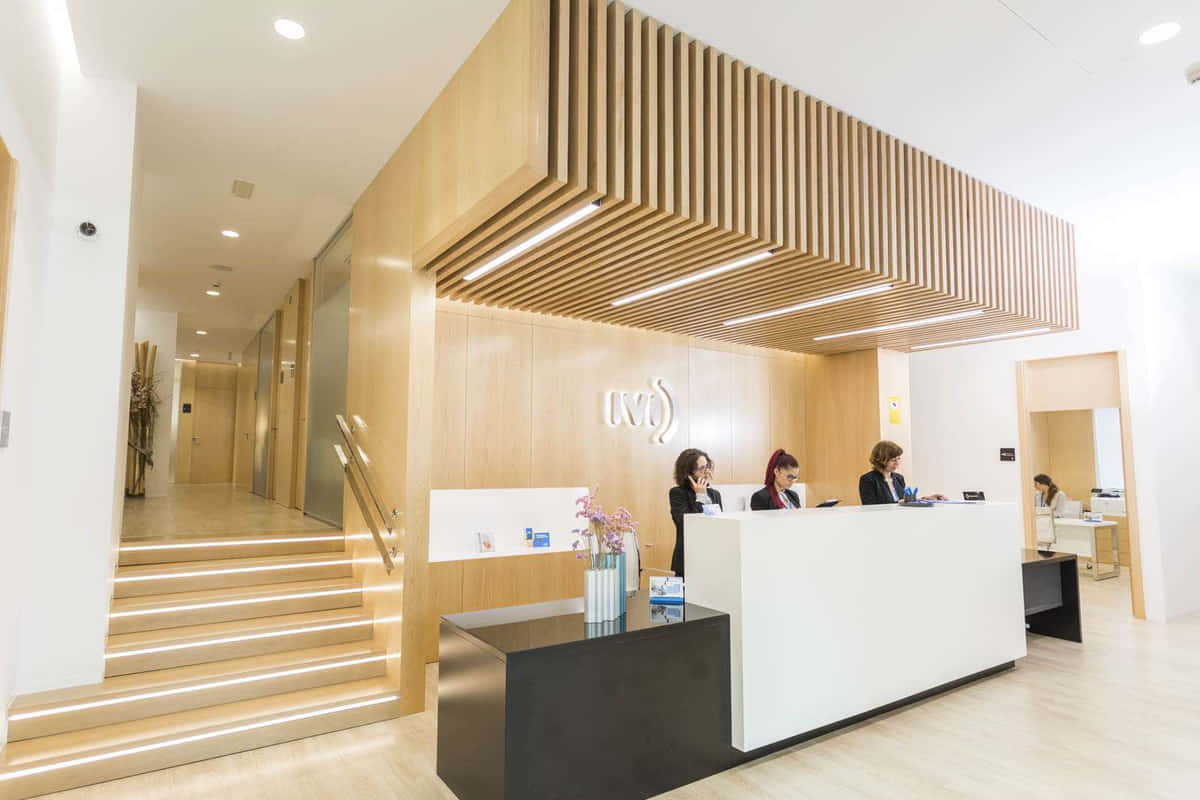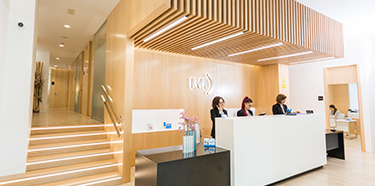

After your first appointment, you will receive a detailed summary of what was discussed and the treatment pathway recommended by your consultant. It will also detail next steps with clear instructions. Whichever treatment pathway you choose, you will need to schedule a nurse planning appointment in order to start planning your treatment timeline.
Your nurse planning appointment is an important step in your treatment journey, as this is where you begin to map out the timeline. It is also where your legal consent to undergo fertility treatment is explained. During this appointment, the step-by-step process will be explained in detail so that you understand what’s involved, the rates of success and the legal implications of treatment. This is the time for you to ask any questions you have regarding treatment and share any concerns you may have.
If you are having treatment as a couple, it is highly recommended you attend together as you will both be required to give your consent before treatment can begin.
For your nurse planning appointment, you can expect to spend between 1 – 1 and a half hour(s) in the clinic.
During this time, we’ll make sure we have all the following results before you embark on a treatment cycle:
We will explain the process of the stimulation regime that we’ve mapped out for your treatment, including how to administer any medication. It is very important to us that each step is thoroughly explained. We will also guide you through the process of fertilisation that takes place during IVF/ICSI or IUI (depending on the relevant option) so that you understand exactly what is involved.
Once you are both happy that you understand the process, we will go through each consent form and sign them. It’s really important that you feel comfortable with what is written on the forms. You can access all the consent forms at any time from your Patient Portal app.
If you did not have a pelvic ultrasound scan performed during your initial consultation, this will be carried out during your nurse planning appointment.
There are two types of IVF cycle: long protocol or short protocol. Protocols refer to the regime of hormonal stimulation you will receive to prepare for your treatment. For both protocols, the medication is the same but the dosages, and the period of time over which they’re administered, is different.
The short, or antagonist, protocol is often used where there is a risk of ovarian hyperstimulation or where there was a poor response to a previous long protocol. It is sometimes recommended for patients with polycystic ovarian syndrome (PCOS). The process is quicker, as there are fewer phases involved. In short protocol cycles, there is no down regulation phase. The long protocol, known as conventional IVF, lasts between 4 to 6 weeks.
Your stimulation protocol is unique to you and will depend on several factors, including your age and your previous response to medication. Your consultant will determine which protocol would be most effective for you and explain this in detail.
Your IVF treatment usually starts on the first day of your period. You will need to inform your team at the clinic when this happens. We will then give you instructions in order to begin your treatment plan as explained in your initial nurse planning appointment.
Many of our patients have long protocol IVF, which means we begin by suppressing the hormones released during your natural cycle, preventing ovulation. This is called down-regulation. It involves administering daily injections over a duration of 2 – 3 weeks. Please note that you don’t start taking these drugs until day 21 of your natural cycle.
During this time, you should have a bleed. We will arrange ultrasound scans to monitor that the drugs are working properly and that your hormones have “switched off”. At this appointment, we’ll teach you how to administer the ovarian stimulation medication, and you will also be given instructions to take home.
Ovarian stimulation during IVF consists of taking daily injections which cause the ovaries to grow and produce a higher number of eggs than in a normal cycle. The eggs develop in fluid-filled sacs called follicles.
In order to monitor the development and maturity of the follicles, you will continue to attend ultrasound scans. Over a period of roughly 2 weeks of stimulation, you’re likely to have between 1 – 3 scans and potentially monitoring blood tests. These are short appointments that last around 20 minutes, and the results are available later the same day. There is no additional costs for these scans and tests, as they are all included in the price of your cycle.
In order to be able to be fertilised, an egg needs to be mature. When a monitoring scan confirms the follicles are large enough to indicate that the egg inside each one is mature, we schedule the egg collection. This will be timed to take place 36 hours after administering an injection of the hormone hCG, which will trigger ovulation. Your hCG injection is administered at home and your team will give you clear instructions, along with exact timings.
The egg collection procedure takes about 30 minutes and you will be given sedation so that you don’t feel any discomfort. With the help of a scan probe, a very fine needle is passed through the vaginal wall and into the ovary to aspirate the follicles containing the eggs. Usually, around 80% of follicles contain an egg. Once the procedure is finished, you will need to stay in the clinic for at least one hour to recover from the sedation. During this time, the results of the procedure will be explained to you. Afterwards, you can go home and continue your day. You will need someone to collect you, as you will not be allowed to drive because of the anaesthetic. We can also arrange a taxi for you.
When you contact us to book your treatment cycle, you will be issued with an invoice. This will need to be paid before a prescription and treatment schedule can be issued.
If your treatment uses a fresh sperm sample, it will need to be provided on the same day as the egg collection. There is a private area of the clinic designed for this, inside the andrology rooms.
If you already have sperm frozen in storage, the sample will be thawed on the same day that the eggs are collected. This is also the case if you are using donor sperm.
The sperm sample is examined closely in the laboratory and only the healthiest sperm is concentrated to be used for insemination.
The insemination process can be performed via conventional IVF, which involves placing an oocyte surrounded by spermatozoa in a culture plate, or via an intracytoplasmic sperm injection (ICSI), which involves depositing a live spermatozoon directly into the oocyte using a pipette.
The culture dishes are placed in the special incubator to allow fertilisation to take place.
After the eggs are left to be fertilised, they will be checked the following day to see if the fertilisation process has been successful. If they have been successfully fertilised, the resulting embryos are graded as they begin to develop. The embryonic development is continually monitored for up to six days after egg collection. Not every embryo will develop properly, so the decision about when to complete the embryo transfer will depend on the number and quality of your embryos.
An embryo transfer procedure is quick and simple. It can feel very similar to a smear test, with a similar level of discomfort. It usually takes around 15 minutes. A tiny drop of culture medium containing one or two embryos is carefully deposited into the uterus using a thin catheter. During the embryo transfer procedure, you will need to have a full bladder for an abdominal ultrasound scan to carried out to ensure the embryo placement within the uterus is optimal.
You will need to wait two weeks before taking a pregnancy test. Your doctor will then schedule a pregnancy blood test to confirm if the treatment was successful. We appreciate how long and difficult this time can be, however taking a test early may give you an incorrect result. During this two week wait, you will need to take extra progesterone to thicken the lining of the uterus. This will give your embryo the best chance of implanting.
You may have multiple good quality embryos and use only one in your treatment. The remaining embryos can be frozen through vitrification and saved for use in the future. This is recommended if you wish to save the cost and inconvenience of another cycle of ovarian stimulation and another egg collection. If you decided before beginning treatment to freeze any additional good quality embryos, you will meet with your consultant to confirm that you still wish to do this. Your embryos will then be frozen.
If your treatment was successful and a pregnancy is confirmed by a blood test, we schedule an ultrasound scan at the clinic at around 6-8 weeks. If the pregnancy is developing correctly at this stage, we’ll discharge you to your GP to continue your pregnancy.
If your period arrives before the test is due or if the pregnancy blood test is negative, please rest assured that you are not alone. A follow-up consultation is provided for all patients whose treatment is unsuccessful, so you can fully understand the results. This consultation gives you the opportunity to fully discuss your treatment cycle and options for the future with one of our clinicians. This follow up consultation is free of charge. You will also provide counselling information so you can make contact with one of our in-house professional counsellors.
From the day your treatment begins when your period arrives until the day you find out the result of the pregnancy test, it should take approximately 9 weeks if you undertake a long protocol IVF cycle. In that time, you will make roughly six visits to the clinic.
The timescale for a short protocol IVF cycle is approximately 5 weeks and you will visit the clinic about five times.